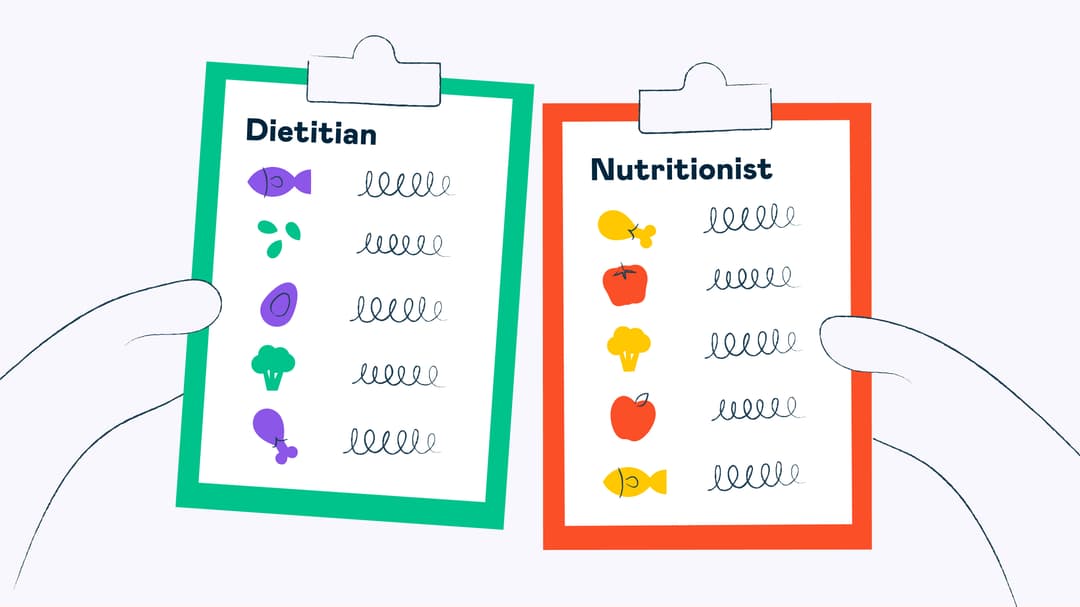All Categories
Featured
Table of Contents
The types of Nutritional experts are: and. The previous are those people who use the scientific approach to research nutrients, both as private substances and as they communicate in food and nutrition while the last are experts that help in identifying the dietary troubles of areas and in locating remedies to those problems.
: They work with wellness programs and international wellness organizations.: They are accountable for large-scale food planning and service.: They are professionals in nourishment and aging. They are Board licensed in Gerontological Nourishment with the American Dietetic Association.: They are primarily involved with dietary related research in the medical element of nourishment in condition states, public element on main, additional and in some cases tertiary wellness prevention and foodservice aspect in issues including the food gotten ready for individuals.
What Is The Best Dietitian Consultation?
: These act as resource people for the media. Dietitians' competence in nutrition is commonly taped for television, radio, and papers-- either as a specialist visitor opinion, normal columnist or visitor, or for source, dining establishment, or dish advancement and critique.: These work under personal technique. As described over, all dietitians are nutritional experts but not all nutritional experts have the credentials and qualifications to be called dietitians.
This implies precisely the very same point as Registered Dietitian (RD), a term that has actually been in use for a long period of time. All RDs are RDNs but some pick to call themselves that and some do not. Even more making complex matters are license needs. While certification to end up being an RD or RDN is regulated by the Academy of Nourishment and Dietetics a national company licensure is managed by individual states.

In order to give medical nourishment treatment and qualify as companies for insurance coverage business, a dietitian has to be accredited by the state. According to the Bureau of Labor Statistics, the demand for dietitians and nutritional experts is expected to enhance by 20% in between 2010 and 2020 this is a much faster growth price than the average for all line of work.
What Is The Best Plant-based Dietitian Company?
There are substantial differences in settlement based on expertise, with Professional Pediatric Dietitians and Milk Nutritionists averaging about $90,000. In 2014, The Bureau of Labor Data (BLS) located that the leading 10% of dietitians and nutritionists make even more than $79,000, and the lower 10% less than $36,000 - Weight Loss Support. A mean hourly wage of $27.62 was computed for both markets, with the top 10% earning above $38.00 per hour, and the bottom 10% earning below $17.00 per hour

There is a variety of jobs offered in different settings for those who want to function with the public, as well as for those that like more research-focused work. Lots of enter among these fields in order to assist people live healthier lives which can be immensely fulfilling.
With existing stats that one-third of the united state population is obese, in addition to a a great deal of senior united state homeowners, dietitians and nutritional experts are most likely to have a much more considerable duty in the future. My Plan places dietitians and nutritional experts at # 53 in their happiness index of top 300 professions with the greatest task complete satisfaction rankings.
In enhancement to attending an approved program, many states need dietitians to be licensed or to have expert certification, or both. On the other hand, just concerning half of states call for such credentials for nutritionists. Also so, lots of professional duties for nutritionists telephone call for at least a bachelor's level, and the same accreditation is readily available for nutritional experts and dietitians alike.
What Is The Best Holistic Nutritionist Company?
Your core courses may include: Food science Chemistry Health and wellness treatment plan Clinical nutrition Biostatistics Microbiology Food solution monitoring You'll additionally need to complete a dietetic teaching fellowship.

Whether composed in regulation or not, dietitians and nutritional experts numerous times need a similar education and learning. Usual bachelor's degrees for nutritionists include nourishment science or a related self-control, such as dietetics, kinesiology, food system management, or biochemistry and biology.
The number of hours you'll require might depend on requirements in the state where you'll function. Whether you intend to make a credential or not, it's a great idea to finish at the very least one teaching fellowship to get useful experience before seeking a full-time role. Licensing and certification demands for nutritional experts and dietitians vary from state to state.
What Do Renal Dietitian Services Include?
A specialist certification demonstrates your competence and knowledge in your area. Below are the top certifications for dietitians and nutritional experts.
The titles are essentially the same. There's no expert difference in between them, and you're complimentary to pick which one you intend to utilize based upon individual choice. To take the accreditation exam, you have to: Earn an undergraduate degree that's accredited by the ACEND Complete a dietetics internship After Jan. 1, 2024, you'll require to earn a master's degree to get the accreditation.
What Is The Best Plant-based Nutritionist Product?
Bureau of Labor Statistics puts dietitians and nutritionists in the same category and states they gain a mean yearly salary of $69,680. But there is a range in salaries, with the lower 10% around $44,910 and the leading 10% around $98,830, according to the BLS. Nutritionist and dietitian roles are anticipated to expand 6.6% with 2032, according to the BLS.
This doesn't mean that a person career is exceptional to the other, as they both have various features and credentials that could in some cases overlap. If you intend to discover even more about what makes these careers distinct, keep analysis. Dieticians are specialists that aid improve the lifestyle with healthy food choices.
The Best Professional Nutritionist Service?
Nutritionist guidance about nourishment's effect on wellness. They aid people take on much healthier ways of eating and produce personalized strategies based on goals. Their solutions consist of dietary analysis and coaching, dish planning and creating healthy and balanced consuming programs. Although some have official education and credentials, others might have more basic accreditations. The field is less regulated than dieticians; for this reason, nutritionists' levels of expertise and credentials can vary.
There are numerous differences between diet professionals and nutritionists. Below are the training and history requirements. Diet professionals typically hold a bachelor's degree in dietetics, nourishment, or a related field. As their jobs advance, many diet professionals seek postgraduate degrees, like a Master's or Doctorate, to be experts in certain locations of nourishment. Diet professionals have to embark on monitored functional training as component of their education to obtain hands-on experience in medical settings, area nutrition programs, or food service administration.
Latest Posts
Transparent Gym Community Near Me
Reliable Functional Fitness (Embleton WA)
High-Quality Exercise Routines Near Me – [:suburb] [:state]